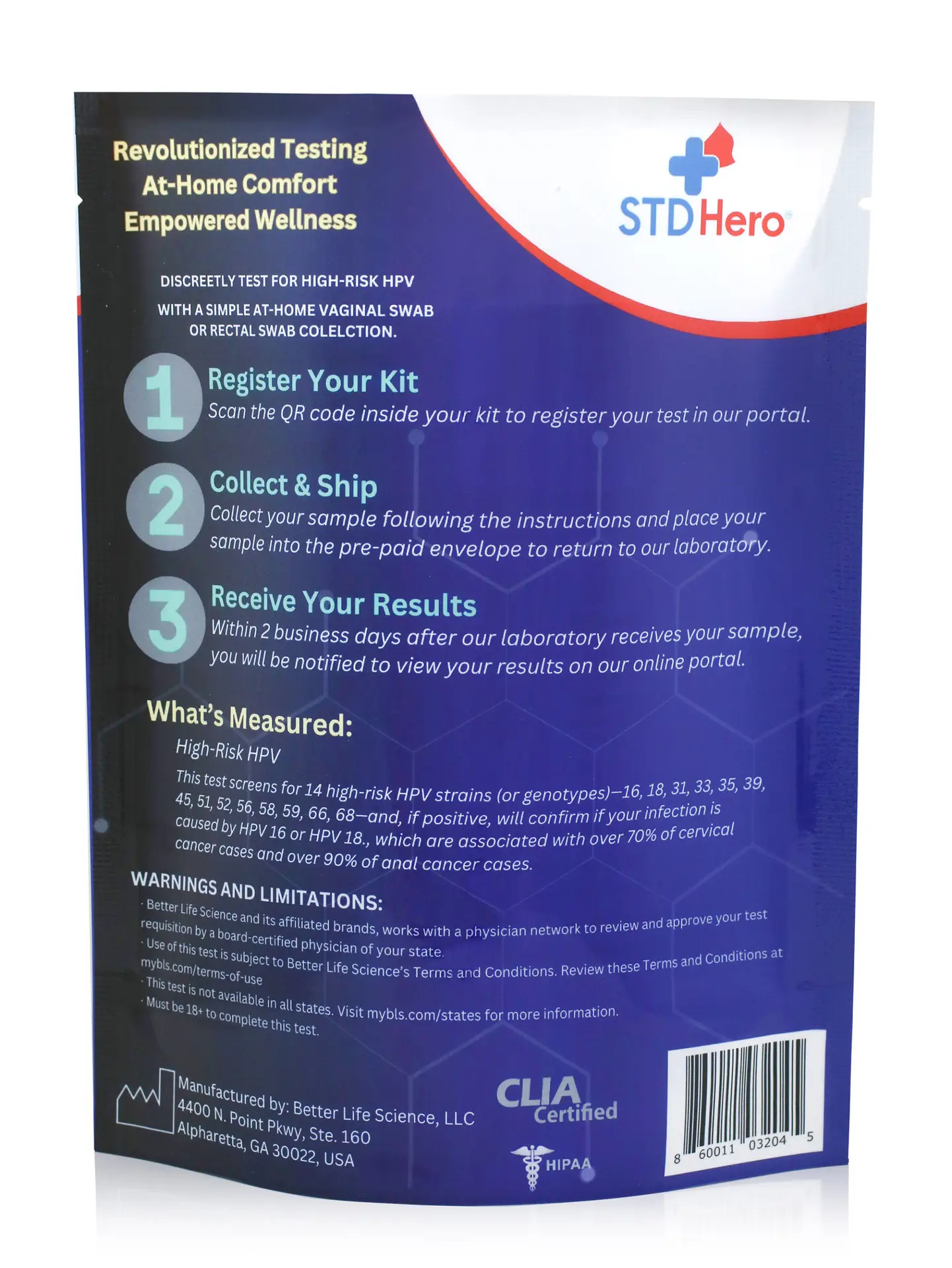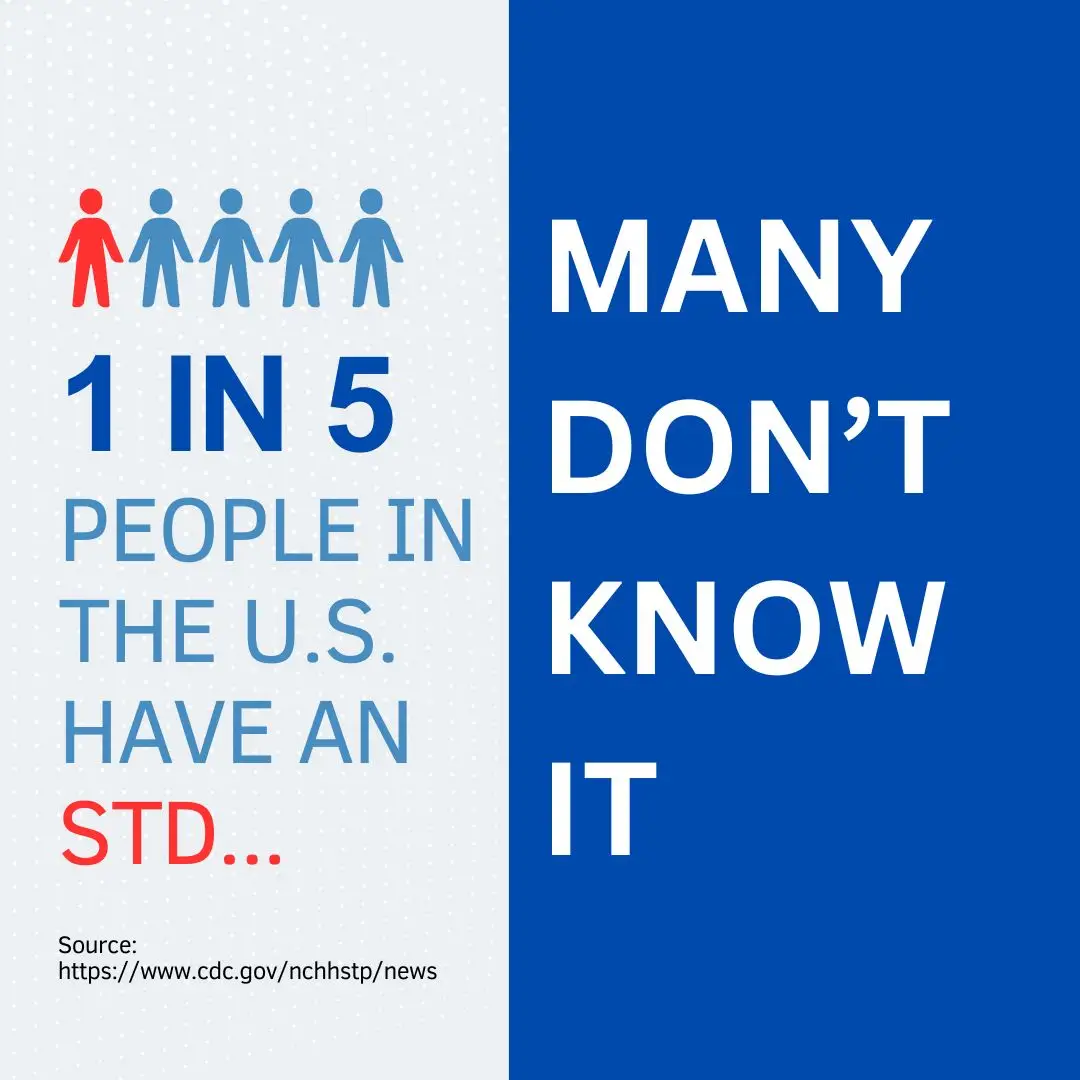Description
At STD Hero, our HPV test looks for 14 high-risk genotypes of the human papillomavirus (HPV). The test results unequivocally confirm the presence of two high-risk genotypes, HPV 16 and HPV 18. These genotypes are directly linked to over 70% of cervical cancer cases and 90% of anal cancer cases.
HPV Screen
HPV has low-risk and high-risk genotypes. Typically, Low-risk genotypes are associated with either no symptoms or mild symptoms, such as papillomas (warts). In contrast, high-risk genotypes are strongly linked to an increased risk of developing certain cancers. This test effectively screens for 14 high-risk HPV strains (or genotypes)—16, 18, 31, 33, 35, 39, 45, 51, 52, 56, 58, 59, 66, 68. If the test results are positive, it will accurately confirm whether your infection is caused by HPV 16 or HPV 18.
HPV 16
Overall, HPV 16 is the most common high-risk genotype and can increase your risk of developing cancer. HPV 16 and 18 combined are responsible for over 70% of cervical cancer cases worldwide.
HPV 18
While HPV 18 is a very common high-risk genotype, it can increase your risk of developing cancer. HPV 16 and 18 combined are responsible for over 70% of all cervical cancer cases worldwide.
Your sample should be collected in the morning Monday – Friday. Additionally, your sample should be returned on the same day.
HPV Kits Include:
- 1 transport tube
- 1 vaginal/rectal swab
- 1 prepaid return envelope to mail your sample back to our lab
- 1 instruction for use booklet
At STD Hero, our test screens for 14 high-risk HPV strains (or genotypes)—16, 18, 31, 33, 35, 39, 45, 51, 52, 56, 58, 59, 66, 68—and, if positive, we will confirm if your infection is caused by HPV 16 or HPV 18, particularly because they are associated with over 70% of cervical cancer cases and over 90% of anal cancer cases.
Note: the final diagnosis and subsequent therapy should always be made and ordered by a medical professional.
Symptoms of sexually transmitted infections will vary from person-to-person depending on the infection. These can include:
- Depending on the type of HPV infected, people may or may not have symptoms.
- Genital warts: Highly contagious lesions that are flat, small cauliflower-like, or small stem-like protrusions on the scrotum, penis, vulva, vagina, cervix, and/or anus
- Common warts: Rough, raised, painful bumps on the fingers, hands, or elbow
- Plantar warts: Hard, grainy growth of skin generally found on the heels or balls of feet
- Flat warts: Slightly raised, flat-topped, darker lesions that can appear on any part of the body
Generally, most people who have HPV infections do not experience symptoms or have mild symptoms such as warts near the genitals.
If you are experiencing any symptoms or if you have any concerns, it is important to consult with a healthcare provider.
You should consider getting tested if:
- You become sexually active
- You have had unprotected sex
- You are experiencing symptoms of a sexually transmitted infection
- You are entering into a new sexual relationship
- You have received a notification from a previous partner that they are infected
Overall, if you are experiencing symptoms, have been informed by a partner that they have a sexually transmitted infection, or if you have any concerns, you should follow up with a healthcare provider.
Yes, this HPV test is available for men and women.





